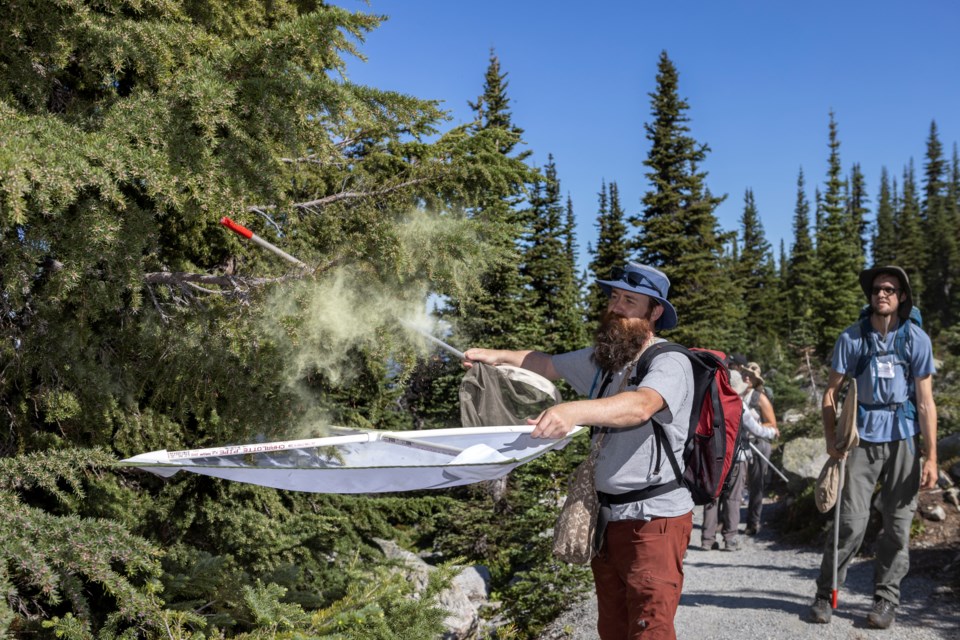The Whistler Naturalists are set to celebrate their 18th-annual BioBlitz, and this year includes a public talk from renowned bear researcher Michael Allen on July 30.
BioBlitz is a search for creatures high and low throughout the alpine and valley ecosystem in Whistler. Each year, 50 to 100 new species are discovered by experts in our own backyard. This year also marks 25 years of the Whistler Naturalists, whose goal is to spur appreciation and knowledge of the local landscape.
Allen’s talk at Myrtle Philip Community School starts at 7 p.m. It costs $10 for adults and is free for those under 18.
His talk centres around “trends and changes” from 30 years of black bear data collection in Whistler. Guests will learn about bears’ salmon use, and hear about grizzlies and mountain lions in the Squamish River watershed in the last decade.
Board director and Whistler Naturalists founder Bob Brett said Allen is “the James Brown of bear research,” and his talks often sell out.
BioBlitz
The goal of a BioBlitz is two-fold: reaching the public through education and bringing in experts to find and catalogue species.
“We've managed to present to virtually all school kids in Whistler [in June]… the other part of it is actual surveys that increase our understanding of how many species are here,” Brett said.
June’s BioBlitz focused on slime moulds, and July’s focus is on insects. Alpine wildflower season is in full swing, which attracts insects and humans alike.
July’s experts include beetle specialists; a bird, dragonfly and butterfly expert; a slime mould expert; and plant experts.
The scientists will blitz Jane Lakes, the Callaghan Valley, and Blackcomb Mountain.
Documenting species includes photography, specimens and written records.
“There's a lot of cross-pollination; one person finds something that may be of interest to another person … it's part of the fun at BioBlitz, an insect person might learn from a bird person who learns from a slime mould person, and there's all sorts of interaction that way,” Brett said.
Becoming a bioblitzer generally requires an open mind, according to Brett.
“I think the ethos of the typical BioBlitz scientists is that they are fascinated by what they don't know," he said. "So, if you can compare it to our current political system, where people are running over each other to convince everyone else that they know everything, the typical BioBlitz scientist is happy to explore their ignorance. And that is to say that even though they know a lot, they realize that there's also a lot more to learn.”
While the blitzes always bring about new knowledge, species discovery shouldn’t be confused with a lack of anthropological impact.
“Every place on the planet, save maybe the highest peak on Antarctica, would have been chock-a-block with biodiversity. Humans are the main change agent," Brett said. "We are pretty good at retaining a lot of biodiversity, but I don’t think it’s any indication that we are doing anything particularly good. We just haven’t been here [in Whistler] that long.”
Click beetle expert Scott Gilmore is attending the blitz this year, and said anyone interested in pursuing citizen science can start by getting outside as much as possible.
“Look for things that you're interested in, and otherwise trying to attend events that actually have sort of local experts, where there's a chance to engage with other people," he said. "On top of that, I would [recommend] starting to use platforms like iNaturalist, where you can take photographs of what you find and where you can also help other people identify stuff from their photographs.”
Read more at whistlernaturalists.ca.



